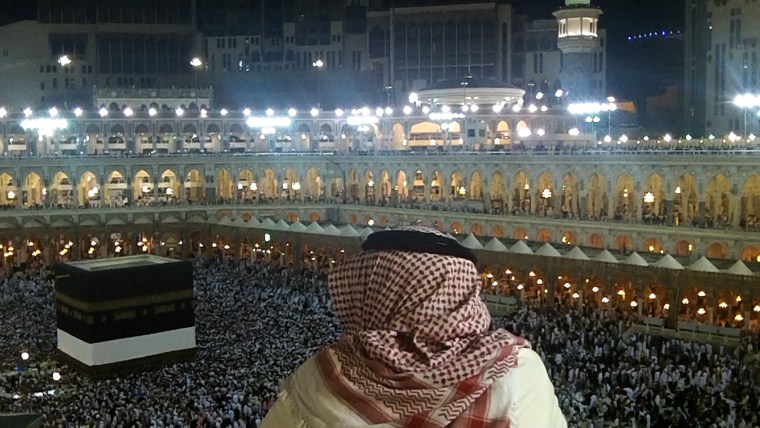When Parvez Sharma, a New York-based documentary film maker made his first film, “A Jihad for Love,” his declaration as a gay Muslim made him a marked man throughout the Islamic world.
What do you do for an encore? For Sharma, there was only one other challenge left.
To test his own faith, Sharma embarked on a hajj, the once-in-a-lifetime pilgrimage made by the most devout Muslims to Mecca, knowing full well that filming would be prohibited and that being gay would be considered a sin punishable by death.
He spent under one month in Saudi Arabia, shooting much of his documentary secretly with an iPhone 4s.
The result, “A Sinner in Mecca,” debuted at this month’s Toronto’s HotDocs festival and has been the talk of the documentary circuit. The film celebrates Sharma’s embrace of his own Muslim faith, but also exposes the danger of Saudi Arabia’s radically fundamentalist Wahhabi brand of Islam. Sharma is also critical of the Saudi’s re-landscaping of sacred areas, putting up hotels and mega-malls with Starbucks near the Kaaba, Islam's holiest site.
Since the Toronto debut, the outspoken Sharma has been bombarded with threatening emails. But he says the entire process, from beginning to end, has been lived in fear. "I was terrified for my life," Sharma said. "The fear I faced in the months leading up to actually departing was enormous, a greater fear than I faced my entire life."
NBC News spoke with Sharma at length about his experience, his message, and his mission.
While filming, were you ever close to being caught?
I’m religious so I feel there was some kind of divine intervention that allowed me to become more and more fearless. That doesn’t mean I didn’t get into trouble. I did any number of times with the religious police. But I just continued to do what I thought was important to do. I did all my rituals the right way as a Muslim. But I also filmed myself doing them.
While I was in Saudi Arabia, I didn’t know if I or the footage would make it out of the country. I did not know if a film would eventually exist. Or that I would eventually exist.
But I believe I was allowed to do what I did because I am a good Muslim and that I’ve become a better Muslim because of what I did.
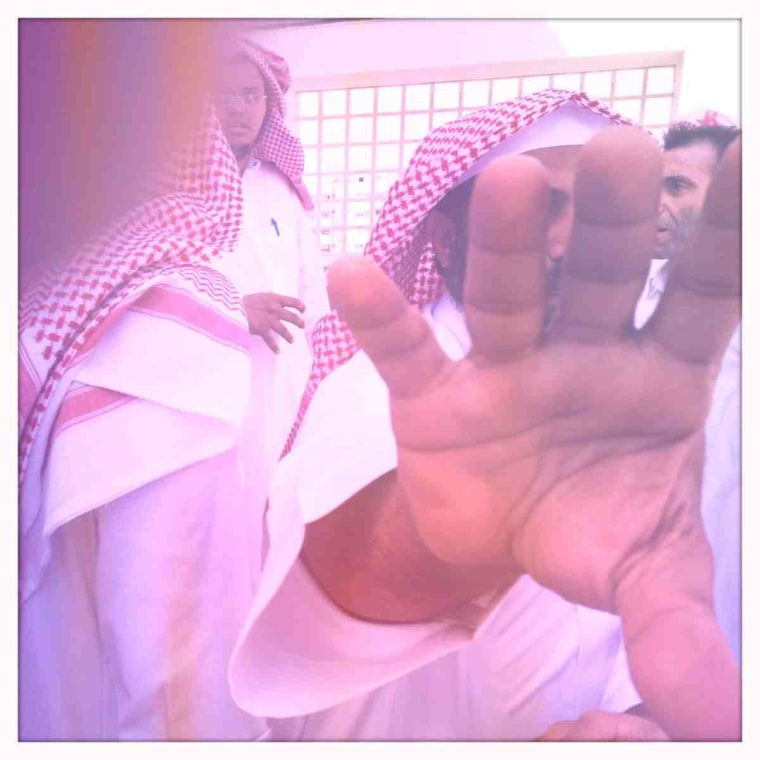
You made it out safely, but what doubts did you have that the film would be completed?
When I came back I still was not sure the film would get made. I had to deal with what I’d actually say and how much of myself I would actually expose. The hardest thing the filmmaker can do, is to turn the camera upon themselves.
The other thing I struggled with was the political. I really wanted the Saudis to be exposed for who they are, and the version of Islam that they practice and export all around the Muslim world. So that was a primary concern for me. This is not a gay film. This is a film about Islam.
This is what is really dangerous about Saudi Arabia and what the West needs to know.
Your journey is a show of your faith and what you believe is the true Islam. But some devout Saudis may say, with their more conservative beliefs, that they are the true followers. Who's right?
The Saudis have always argued that Wahhabi Islam is the only way. They are wrong. Wahhabi Islam is a dangerous ideology. The roots of the thought process behind the horrifying ideologies of both ISIS and al-Qaeda lie within the cruel and puritanical Wahhabi Islam. The Saudis teach it in their schools. Let us not forget that Saudi Arabia's most famous son was Osama bin Laden -- this was no accident. The problem is that because of the Saudis and Wahhabi Islam, contemporary Islam is at war with itself and Muslims like me continue to fight hard to not be casualties. So for true change to happen, Muslims like me need to stand up and speak out against the Saudis. We need to question the temerity of the Saudi King to append the title "Custodian of the Two Holy Mosques" to his name. The House of al-Saud is the most dangerous monarchy in the entire world. And nations like the US need to step up and challenge them on all fronts, including their non-existent human rights record.
I mean we’re in the 21st century and this is a country that carries out beheadings on a weekly basis for all kinds of punishments. And no one questions it. So for me, it’s very important to talk about that. And to talk about how the Wahhabi Islam has nothing to do with the Islam as originally seen by the Prophet.
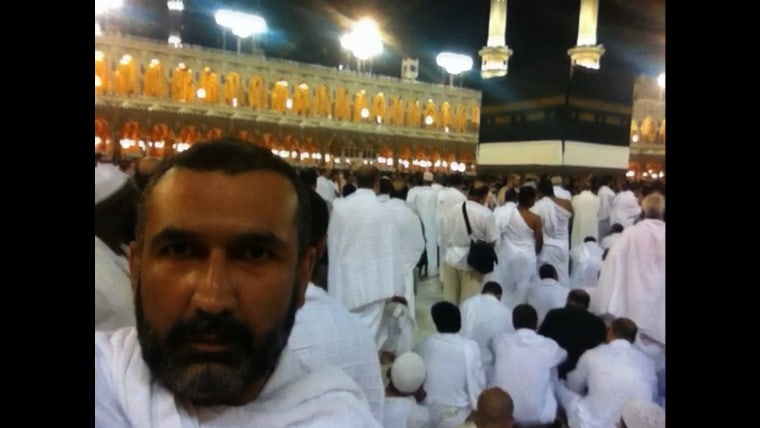
Some in the West may still see Islam as too conservative. Where do you draw the line between your idea of the true believer and the radical?
By far, the largest number of Muslims on this planet (and there are more than a billion) are peace-loving and do not follow the bastardized versions of the religion put on media display, every single day. During Hajj, I mingled with millions of Muslims -- the majority peace loving pilgrims who had saved their entire lives to be able to embark on Islam's highest calling, the Hajj. But in our midst there were also radical jihadists for whom violence is a creed. I believe the difference between a true believer and a radical is faith. A true believer, a real Muslim believes in the nuances of faith. A radical Muslim (and they are the smallest minority) only have faith in violence and vengeance. Islam unlike many other religions does not provide an intermediary in a faithful Muslim's direct relationship to God. And true believers like me, understand that. Islam's reform in this still new century is urgent. But I truly believe that it is only the believers who will have the ability to transform the religion from within. That is essentially how real, measurable change happens. And now with the title Hajji (having completed the Hajj) attached to my name, I strongly believe I like many others have the authority to stand up to what’s wrong within the religion and urgently needs to change. The transformation has urgency. We are running out of time. We need to take our religion back from those who have stolen it from us.
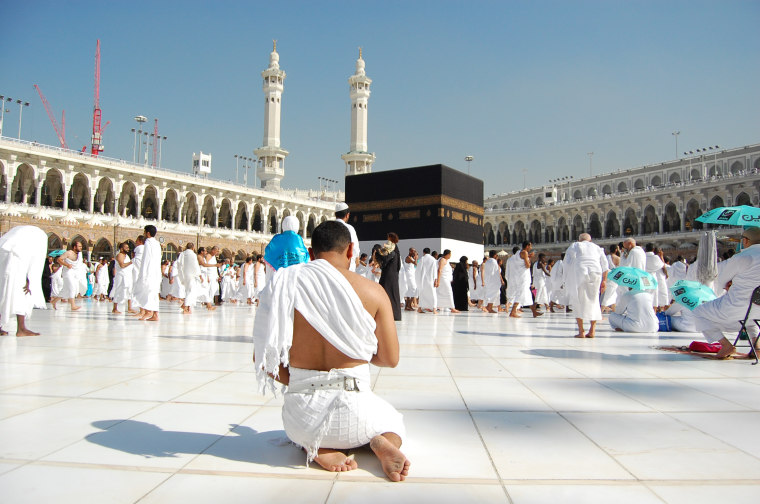
How did going to Mecca strengthen or change you?
My Hajj changed me forever. As I say in the film, it was no longer a question of whether Islam would accept me. It was a question of whether I would accept Islam. And sitting, night after sleepless night at the magnet-like Kaaba, that is exactly what I did. I accepted Islam, but on my own terms. And it was only the Kaaba, and the Kaaba alone that gave me the strength to do that. The Kaaba is the reason millions of Muslims have been drawn to Mecca for 14 centuries. And it is that very Kaaba we need to protect from its current masters, the corrupt and secretive Saudi monarchy and their Wahhabi cohorts.
Threatening e-mails won’t stop you?
This came in yesterday. It says “We need to find a sheikh who can issue a fatwa against this bastard. He is insulting Islam and playing to the left. Death penalty for him now.” In some strange way, it strengthens my resolve to continue the work I’m doing.
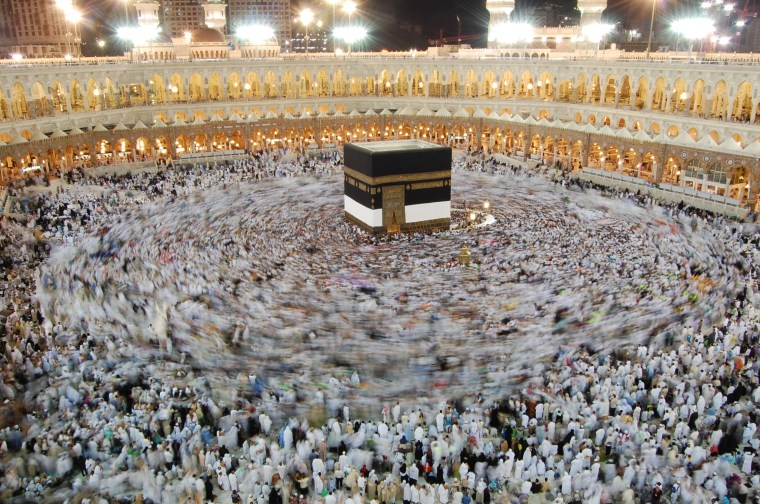
“A Sinner in Mecca” will have its European premiere in June, and its U.S. premiere in July.
Interview was edited for clarity and length.
